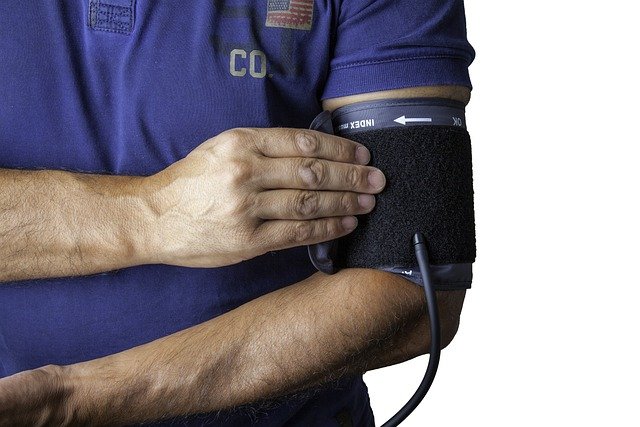First Signs of Colon Cancer That Many People Tend to Ignore Why Paying Attention Early Could Save Your Life
Colon cancer, also known as colorectal cancer, is one of the most common types of cancer in the United States — yet many of its early warning signs go unnoticed or are mistaken for less serious issues. Because early detection significantly increases the chances of successful treatment, understanding and recognizing the first symptoms is crucial. Staying informed and proactive about your digestive health can make a real difference.

Why Early Detection Matters
Early detection of colon cancer dramatically improves treatment success rates and survival outcomes. When caught in its earliest stages, colon cancer has a five-year survival rate of approximately 90%. This statistic drops significantly as the cancer progresses to later stages, making early recognition of symptoms absolutely critical.
The challenge lies in the fact that colon cancer often develops slowly over several years, beginning as small, benign growths called polyps. These polyps can gradually become cancerous, but during this transformation period, symptoms may be subtle or entirely absent. This is why understanding the subtle early warning signs becomes so important for your long-term health.
Common Early Signs That Shouldn’t Be Ignored
Several early symptoms of colon cancer are frequently dismissed as minor digestive issues or attributed to other common conditions. Persistent changes in bowel habits represent one of the most significant early warning signs. This includes ongoing diarrhea, constipation, or changes in stool consistency that last longer than a few days.
Blood in the stool, whether bright red or appearing as dark, tarry stools, should never be ignored, even if it seems minor. Many people assume this indicates hemorrhoids or minor irritation, but it can signal something more serious requiring immediate medical attention.
Unexplained abdominal discomfort, including cramping, gas, or pain that doesn’t resolve with typical remedies, may also indicate early colon cancer. Additionally, a feeling that your bowel doesn’t empty completely after a bowel movement, persistent fatigue, or unexplained weight loss should prompt a conversation with your healthcare provider.
Who Is at Risk?
Understanding risk factors helps determine who should be especially vigilant about early symptoms. Age represents the most significant risk factor, with most colon cancers occurring in people over 50, though rates in younger adults have been increasing in recent years.
Family history of colon cancer or certain genetic conditions significantly increases risk. People with inflammatory bowel diseases like Crohn’s disease or ulcerative colitis face higher risks, as do those with a history of polyps. Lifestyle factors including a diet high in processed meats, smoking, heavy alcohol consumption, obesity, and sedentary lifestyle also contribute to increased risk.
Certain ethnic groups, particularly African Americans, have higher rates of colon cancer and tend to develop it at younger ages. Environmental factors and access to healthcare also play important roles in both risk and outcomes.
The Importance of Regular Screenings
Regular screening remains the most effective tool for preventing colon cancer deaths. Current guidelines recommend that people at average risk begin screening at age 45, though those with higher risk factors may need to start earlier and screen more frequently.
Several screening options exist, including colonoscopy, flexible sigmoidoscopy, and stool-based tests. Colonoscopy, performed every 10 years for average-risk individuals, remains the gold standard because it can both detect and remove polyps during the same procedure. Stool-based tests, while less invasive, require more frequent testing and may miss some polyps or early cancers.
The key is discussing your individual risk factors with your healthcare provider to determine the most appropriate screening schedule. Many insurance plans cover preventive colon cancer screening, making these life-saving tests accessible to most people.
| Treatment Type | Provider Example | Estimated Cost Range |
|---|---|---|
| Colonoscopy Screening | Local Gastroenterology Centers | $1,000 - $3,000 |
| Surgical Treatment | Major Medical Centers | $20,000 - $50,000 |
| Chemotherapy | Cancer Treatment Centers | $10,000 - $30,000 per cycle |
| Radiation Therapy | Oncology Clinics | $15,000 - $40,000 |
Prices, rates, or cost estimates mentioned in this article are based on the latest available information but may change over time. Independent research is advised before making financial decisions.
Stay Proactive About Your Health
Taking a proactive approach to your digestive health involves more than just recognizing symptoms. Maintaining a healthy lifestyle through regular exercise, a diet rich in fruits and vegetables, limiting processed foods, and avoiding smoking can significantly reduce your risk of developing colon cancer.
Keep track of changes in your digestive patterns and don’t hesitate to discuss concerns with your healthcare provider. Many people feel embarrassed discussing bowel habits, but these conversations are routine for medical professionals and could save your life.
Building a relationship with a primary care physician who understands your medical history and risk factors ensures you receive appropriate screening recommendations. If you have a family history of colon cancer, consider genetic counseling to better understand your risk and develop a personalized prevention strategy.
Colon cancer’s early signs may be subtle, but they’re your body’s way of signaling that something needs attention. By staying informed about symptoms, understanding your risk factors, and maintaining regular screening schedules, you’re taking important steps toward protecting your health. Remember that many digestive symptoms have benign explanations, but only proper medical evaluation can provide the reassurance and care you need.
This article is for informational purposes only and should not be considered medical advice. Please consult a qualified healthcare professional for personalized guidance and treatment.




